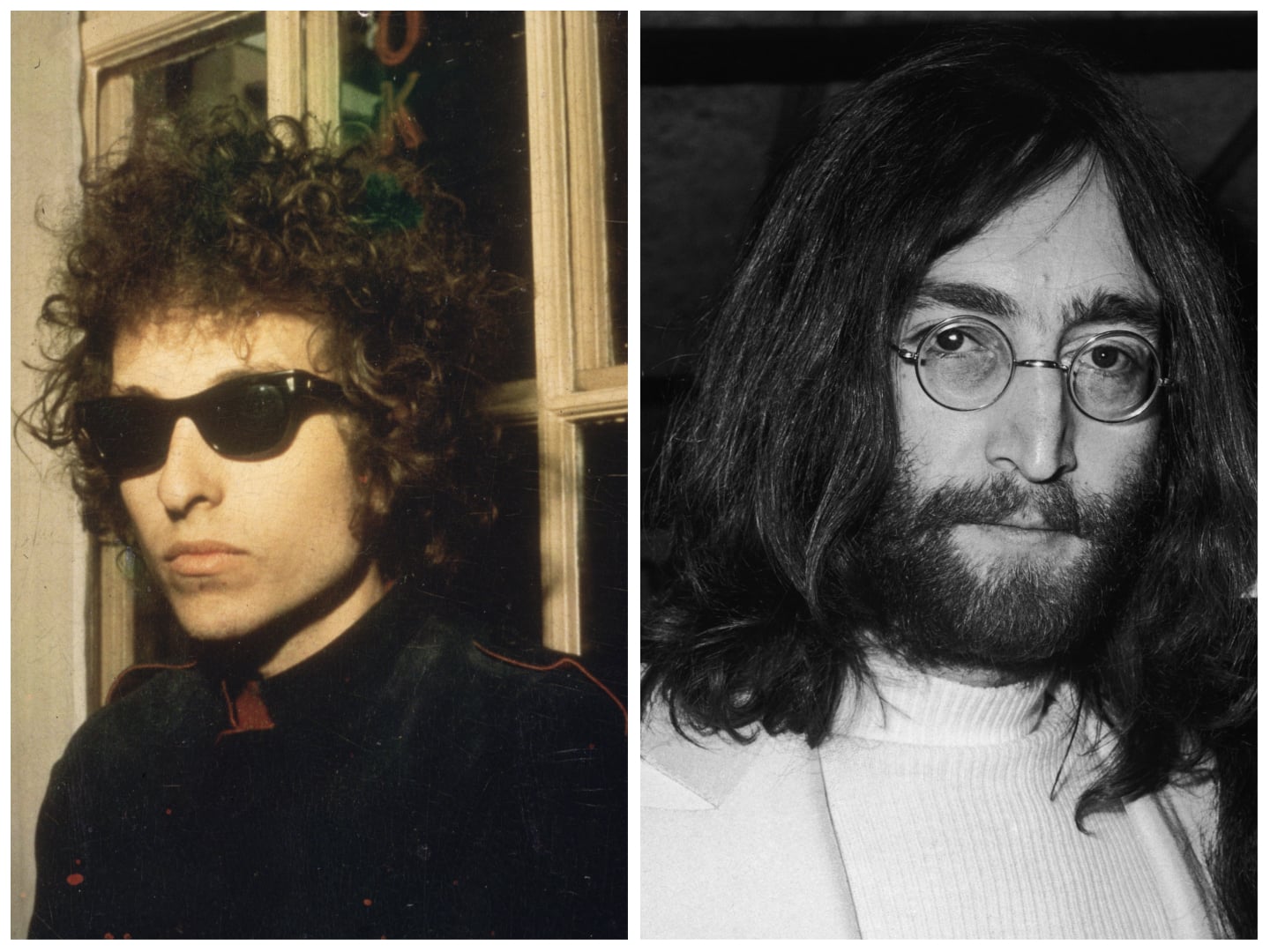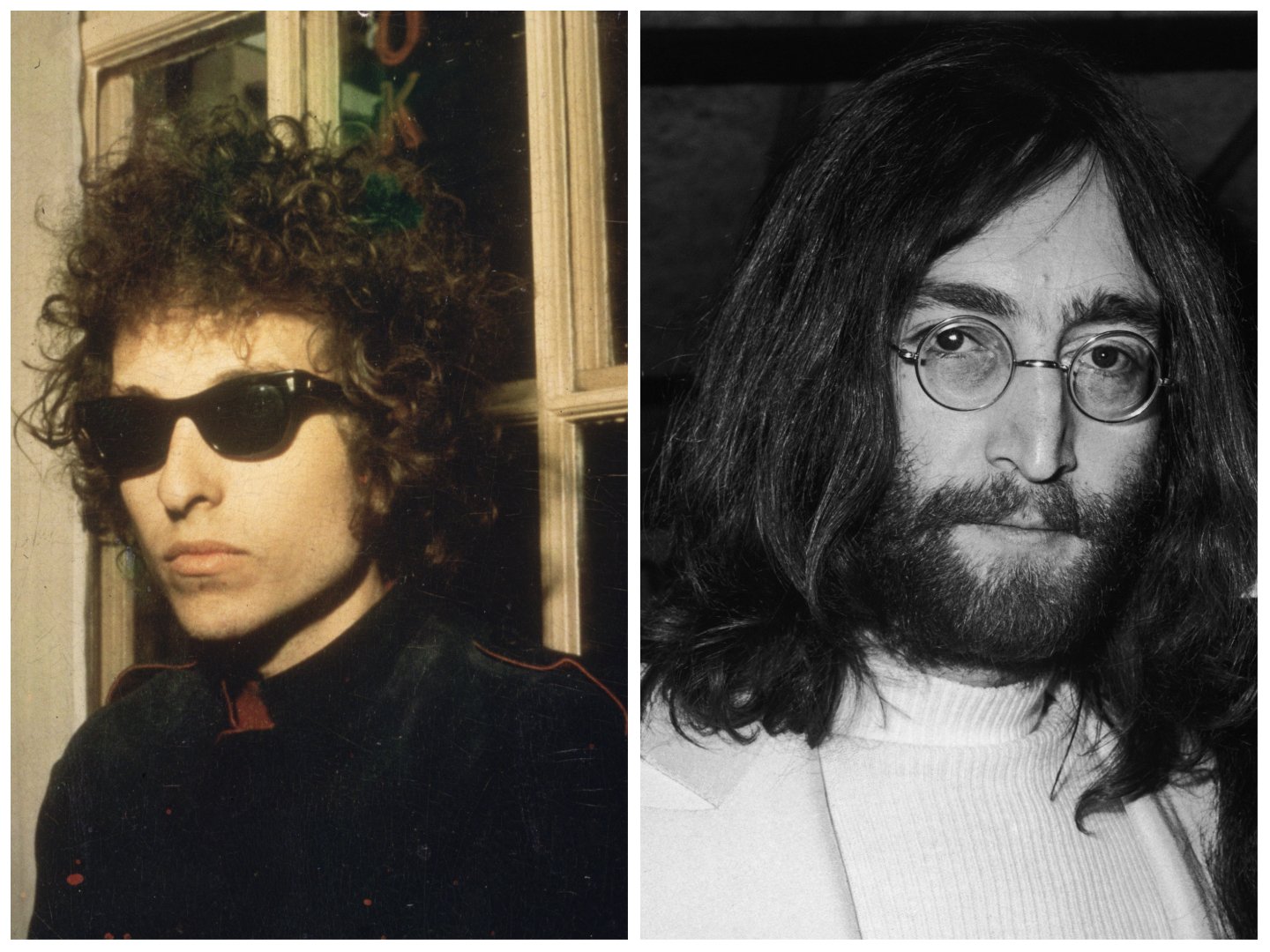
John Lennon Was Convinced Bob Dylan Was Going to Die on a Car Ride and ‘His Instinct Was to Bolt’
John Lennon and Bob Dylan were two of the most influential artists of the 1960s, and they had a great deal of respect for one another. While they enjoyed spending time together, Lennon admitted they were often “uptight.” This dynamic was on full display when the two artists rode around in the back of a limo for the documentary film Eat the Document. Their conversation was aimless, and afterward, Dylan got sick. As this was happening, Lennon feared that Dylan was going to die.

Bob Dylan and John Lennon first met in 1964
In 1964, Dylan met The Beatles at the Delmonico Hotel in New York. He introduced the band to marijuana, and Lennon used this as an opportunity to assert his dominance over the group. When Dylan offered them a joint, Lennon ordered Ringo Starr to try it first. Starr seemed hesitant, but Lennon insisted. Per the book Ringo: With a Little Help by Michael Seth Starr, journalist Al Aronowitz said Lennon “instantly revealed The Beatles’ pecking order” with this move.
Dylan saw The Beatles a number of times on this trip to New York and others. According to The Beatles’ road manager, Neil Aspinall, Dylan always paid the most attention to Lennon.
“If ever Bob got together with the Beatles after that, John was always the one he zeroed in on,” Aspinall said, per the book John Lennon: The Life by Phillip Norman. “He knew who was the leader of the band.”
The American musician got sick after an awkward conversation
Two years later, Dylan and Lennon spoke in the back of a limousine for the documentary film Eat the Document. Their conversation was rambling and nonsensical.
“They had a funny relationship to begin with,” filmmaker D.A. Pennebaker told Gadfly in 1999. “In this particular scene it was as if they were trying to invent something for me that would be amusing in some way, but at the same time they were doing it for each other. It was not exactly a conversation by any means.”
The pair were both intoxicated. Dylan drank from a bottle in a bag, and Lennon once said the two of them had been using heroin. Dylan began to complain about feeling sick.
“Hey, I’m very sick, man,” he said, per the book The Ballad of Bob Dylan: A Portrait by Daniel Mark Epstein. “I’ll be glad when this is over, ’cause I’m getting very sick here.”
Dylan did get sick when they returned to the hotel, and Lennon and Pennebaker helped him back to his room. According to Pennebaker, Lennon was genuinely fearful that Dylan would die.
“John [Lennon] was terrified because he thought Dylan was going to die,” Pennebaker said. “He was on something, and it was like he was OD’ing. John and I had to take him up the stairs of the hotel and John kept looking at me, and I could see that his instinct was to bolt because he didn’t want to be around if something happened. He didn’t want to get caught up in it. But he stuck with us. And John was a very good friend of Dylan’s. John just loved him. And vice versa. They adored each other.”
John Lennon said he never saw the movie he filmed with Bob Dylan
Dylan intended for the film to air on ABC, but the network turned it down because they thought it would be incomprehensible to audiences. Lennon admitted that even he hadn’t seen it.
“I’ve never seen it but I’d love to see it,” he told Rolling Stone in 1971. “I was always so paranoid and Bob said ‘I want you to be in this film.’ He just wanted to me to be in the film. I thought why? What? He’s going to put me down; I went all through this terrible thing.”
Lennon explained that he was nervous because it was Dylan’s project, not his own.
“In the film, I’m just blabbing off and commenting all the time, like you do when you’re very high or stoned,” he said. “I had been up all night. We were being smart alecks, it’s terrible. But it was his scene, that was the problem for me. It was his movie. I was on his territory, that’s why I was so nervous. I was on his session.”
How to get help: In the U.S., contact the Substance Abuse and Mental Health Services Administration helpline at 1-800-662-4357.


